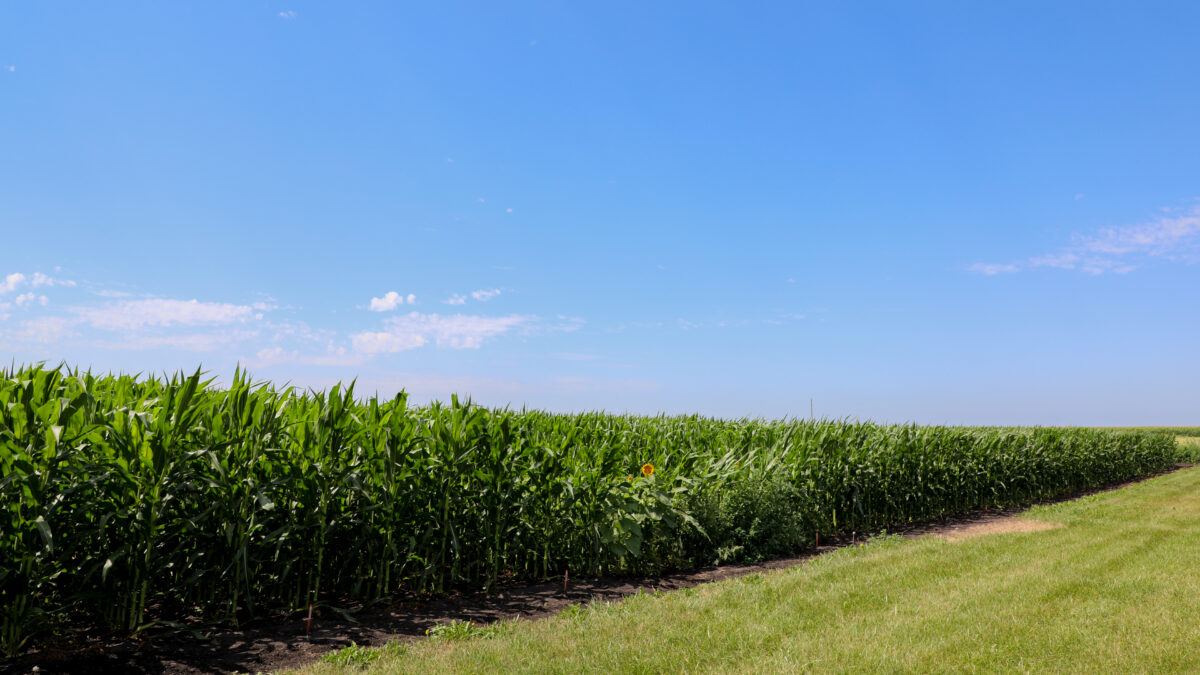Time to Grow Biofuel Use
TOPICS
RFSZippy Duvall
President

photo credit: Right Eye Digital, Used with Permission
Zippy Duvall
President
As homegrown fuels, ethanol and biodiesel have helped reduce greenhouse gas emissions, lower gas prices, increase demand for corn and soybeans and decrease our dependence on foreign energy sources. But the road to success has sometimes been a bumpy one, so we must keep paving the way to ensure a sustainable future with renewable fuels.
Ethanol and biodiesel use reduced greenhouse gas emissions to the equivalent of taking 17 million cars off the road for a year, according to the EPA. That success comes in part thanks to the Renewable Fuel Standard (RFS), the law that requires ethanol and biodiesel be blended into fuels. Farmers have faced a long battle with “small refinery waivers” from the EPA—these waivers have received bipartisan criticism. Recently, the Biden administration upheld a court decision to limit these waivers, a positive sign that EPA will preserve the integrity of the RFS.
America’s farmers are ready to grow more clean and affordable fuel.
In 2020, the ethanol industry, along with the rest of the farm economy, was hit with a perfect storm. Oil demand had started to drop as more people stayed at home because of COVID-19. At the same time, large oil-producing nations, Saudi Arabia and Russia, massively expanded production in a price war that led to a 65% drop in oil prices. These two events led to a collapse of ethanol demand causing around 150 ethanol plants to either stop or reduce production. Exports of ethanol also fell in 2020 as demand for fuel fell—and that after U.S. exports had already dropped in 2019 by a whopping 13%.
A year after the collapse, both ethanol and biodiesel demand is increasing as lockdowns are lifted, and we can get some return to normal. While not all travel patterns may return to what they once were, we can be hopeful that demand for ethanol and biodiesel will return to pre-COVID levels. As Americans hit the road again this spring and summer, the fundamental truth about biofuels is more important than ever: They are helping reduce our emissions and play an important role in agriculture’s sustainability story. As the Biden administration focuses on climate, farmers stand ready to provide the crops needed to produce more biofuels and help achieve clean energy goals, in addition to our climate-smart farming practices.
It is time to build on the success of the RFS. Farmers are grateful the Trump administration recognized that the 10% RFS blend requirement was just a starting point and expanded sales of E15 year round. This blending requirement saves us over $18 billion a year in fuel expenses – imagine the savings if we increase the use of higher percentage fuel blends.
Increasing the percentage of biofuels at the gas pump has not only been good for the economy, but it has also reduced our dependence on foreign energy sources. Just like our food supply is a national security issue, so is our fuel supply. We are safer if we are less reliant on other countries for the fuel we need to heat our homes and keep our economy moving. And as other countries start to rely on our energy exports, we can build relationships and hopefully expand trade into other sectors of the economy.
As consumer demand for clean energy vehicles increases, we can meet the demand at home and abroad for cleaner fuels with biofuels grown and refined in America. Biofuels provide real emissions reductions today and should be the foundation for any future energy and transportation policy in the U.S. We also need to continue expanding international markets for U.S. biofuels, if we’re going to protect farms and the green jobs and energy they support.
America’s farmers are ready to grow more clean and affordable fuel, and Farm Bureau looks forward to working with the new EPA administrator, Michael Regan, to expand the RFS and put more biofuels into our tanks. Homegrown, renewable fuel has been an American success story, and expanding to more international markets can make it a global success story.
Zippy Duvall
President
Vincent “Zippy” Duvall, a poultry, cattle and hay producer from Greene County, Georgia, is the 12th president of the American Farm Bureau Federation.
Top Issues
VIEW ALL